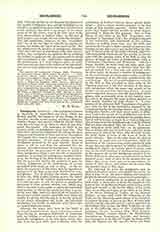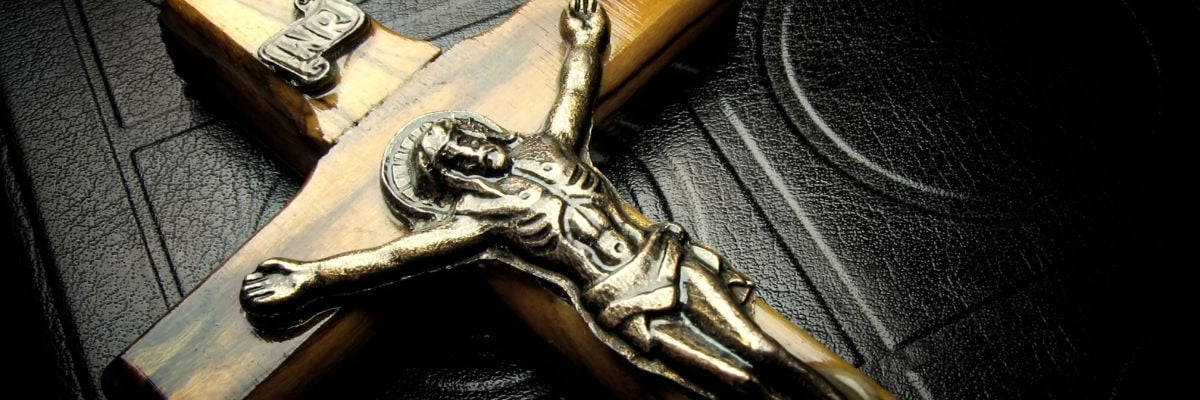

Indulgences, Apostolic.—The indulgences known as Apostolic or Apostolical are those which the Roman pontiff, the successor of the Prince of the Apostles, attaches to the crosses, crucifixes, chaplets, rosaries, images, and medals which he blesses, either with his own hand or by those to whom he has delegated this faculty. The principles set forth in the general article on indulgences apply here also. But since these Apostolic indulgences are among the most frequent and abundant of those now in use throughout the Church, they seem to require a separate and more detailed treatment. As the name implies, they are indulgences granted by the pope himself. Some of them, as will be seen from the subjoined list, are plenary, and others are partial indulgences. It may be observed that the possession of the cross or medal or other indulgenced object is not the sole or immediate condition for gaining the indulgences attached there-to by the blessing of the Holy Esther or his delegate. But the possession enables the recipient to gain the various indulgences on the performance of certain prescribed good works or acts of piety. In this respect the possession of the object may be regarded as analogous to the local or personal limitation of other indulgences. For in blessing the objects presented to him, the Holy Father thereby grants the indulgences, not to all the faithful indiscriminately, but to certain persons, to wit the actual or prospective possessors of these crosses, medals, etc., which may thus be regarded as the marks or tokens distinguishing those persons to whom this special privilege is given. At the same time, since it is open to all the faithful to obtain such blessed objects, especially now, when the faculty for giving this blessing is so readily granted to the clergy throughout the world, the Apostolic indulgences can hardly be reckoned with those that are merely local or personal.
Although the popes have been in the habit of granting indulgences from a much earlier date, some of them having an analogous limitation or connection with the holding or wearing of a blessed object, the Apostolic indulgences, as we now know them, date only from the year 1587—just a lifetime after the publication of Luther’s famous theses against indulgences. And a curious interest attaches to the first origin of this familiar practice. Before that date popes had simply blessed medals or other objects presented to them for that purpose. But as Pope Sixtus V sets forth in his Bull “Laudemus viros gloriosos” (December 1, 1587), the workmen engaged in his restoration and adornment of the Lateran Basilica, in pulling down some very old walls, had accidentally brought to light a number of ancient coins bearing on one side a cross and on the other the likeness of one or other of the early Christian emperors. This remarkable discovery led the pontiff, in accordance with the opening words of his Bull, to sing the praises of those old rulers of Christendom, such as Constantine, Theodosius, and Marcianus. And, by a happy thought, he made their old coins again pass current, though bearing, as befitted their new life, not an earthly but a heavenly and spiritual value. In other words, he granted a number of indulgences, on the performance of certain pious works, to all who became possessors of the old coins enriched with this new blessing. The list of special indulgences set forth in this Bull as thus attached to those coins of the Christian emperors is the first instance of the Apostolic indulgences which the popes now attach to the medals, etc. presented for their benediction. It must not be supposed, however, that the Apostolical indulgences, now so generally given in this familiar manner, are in all respects the same as those granted on this special occasion by Pope Sixtus V. A comparison of the aforesaid Bull “Laudemus viros gloriosos” with the list in the instruction annexed to the customary faculty for blessing rosaries etc., attaching indulgences thereto, will show many points of difference, both in the extent of the indulgences and in the good works prescribed as conditions for gaining them. And it will be found, as might have been anticipated, that in some cases the indulgences given in the Sixtine Bull are more abundant than the others. In at least one important point both lists are in agreement. Thus it will be seen that in both cases a plenary indulgence may be gained by those who devoutly invoke the Holy Name of Jesus at the hour of death (in mortis articulo). But, on the other hand, the plenary indulgence for confession and Communion which the possessors of the Lateran coins could apparently gain on any day can only be gained by holders of ordinary indulgenced objects on certain great festivals, and that on the fixed condition of reciting certain prayers. In like manner the partial indulgences granted in the Sixtine Bull are in some cases as much as two or three hundred years; none of these in the modern lists are higher than seven years and seven quarantines (or spaces of forty days); and others are no more than one hundred days or fifty days.
The following list gives the indulgences now attached to chaplets, crosses, and medals blessed by the Holy Father or by any priest holding the delegated lacunas bendicendi coronas, cruces et sacra numismata :
(I) A plenary indulgence, to be gained by all who shall recite at least once a week the chaplet of Our Lord, or that of the Blessed Virgin, or the rosary, or the third part thereof, or the Divine Office, or the Little Office of the Blessed Virgin, or the Office of the Dead, or the Seven Penitential Psalms, or the Gradual Psalms; or who shall teach the rudiments of the Faith, or visit those who are in prison or in a hospital, or succor the poor, or hear or say Mass, if being truly contrite and having confessed to a priest approved by the bishop, they receive the Holy Eucharist on any one of the following days, to wit: Christmas, the Epiphany, Easter, Ascension Day, Whit Sunday, Trinity Sunday, Corpus Christi, the Purification, Annunciation, Assumption, Nativity, and Immaculate Conception of the Blessed Virgin, the feasts of St. John the Baptist and the Apostles Peter and Paul, Andrew, James, John, Thomas, Philip and James, Bartholomew, Matthew, Simon and Jude, Matthias, the feast of St. Joseph and All Saints‘ Day; and shall pray devoutly for the uprooting of heresies and schisms, for the propagation of the Catholic Faith, for peace and concord among Christian princes, and for the other needs of the Church.
An indulgence of seven years and seven quarantines to be gained on the same conditions on any other feast of Christ or of the Blessed Virgin.
An indulgence of five years and five quarantines to be gained on the same conditions on any Sunday or feast of the year.
An indulgence of one hundred days, to be gained on the same conditions on any other day in the year.
All who are accustomed to recite at least once a week the chaplet, or the rosary, or the Office of the Blessed Virgin, or of the Dead, or Vespers, or at least one Nocturn with Lauds, or the Seven Penitential Psalms with their litanies and prayers, shall gain an indulgence of one hundred days every time they do so.
Whosoever in articulo mortis devoutly commends his soul to God, and being ready to accept death peacefully and willingly from the hands of God, and truly penitent, and having confessed and been refreshed with Holy Communion, or if this be not possible, at least contrite, shall invoke the Name of Jesus with the lips if possible, or, if not, at least with the heart, shall receive the fruit of a plenary indulgence.
Whosoever shall make a devout preparation before saying Mass, or receiving the Holy Eucharist or reciting the Divine Office or the Little Office of the Blessed Virgin, shall receive an indulgence of fifty days every time he does this.
All who visit those in prison or the sick in the hospitals, helping them by some good work, or teach Christian doctrine in a church, or at home to their children, kindred, or servants, shall gain an indulgence of two hundred days.
Whosoever at the sound of a church bell shall say the Angelus morning, noon, or evening, or, not knowing it, shall say once an Our Father and Hail Mary, or at the evening signal for praying for the dead shall recite the psalm De Profundis, or if he know it not an Our Father and Hail Mary shall gain an indulgence of one hundred days.
All who on Friday shall devoutly meditate on the Passion and Death of Christ and say three Our Fathers and Hail Marys shall gain one hundred days indulgence.
Whosoever, being truly penitent, and firmly purposing to amend his life, shall examine his conscience, and devoutly repeat the Our Father and Hail Mary thrice in honor of the Blessed Trinity, or five times in reverence for the Five Wounds of Christ, shall likewise gain one hundred days’ indulgence.
Whosoever prays with devotion for those in their agony, or says for them at least an Our Father and Hail Mary, shall gain an indulgence of fifty days.
In order to gain any of these indulgences the person must have the blessed medal, etc. with him at the time, or else have it kept in his room in some seemly place and say the prescribed prayers there. It is expressly declared in the instruction annexed to the faculty that this blessing and indulgence is not given to painted or printed images or to crosses etc. made of iron, pewter, lead, or any fragile material. The images, moreover, must represent canonized saints or those whose names are in the Roman Martyrology. The indulgence is confined to the person to whom the object is first given and it is lost if the object be given or lent for the purpose of transferring the indulgence; it is not lost, however, when lent for another purpose, e.g. for use in reciting the rosary. And when medals etc. have been enriched with these indulgences, it is strictly forbidden to sell them.
W. H. KENT


